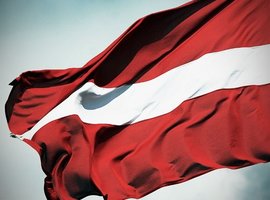Analytics, Baltic, Demography, Integration, Latvia
International Internet Magazine. Baltic States news & analytics
Thursday, 25.04.2024, 19:11
Latvia's integration policies are ad hoc and reach small part of immigrants
 Print version
Print version |
|---|
Latvia has the lowest score among all EU member states covered by the study - immigrants in Latvia meet many more obstacles than opportunities here, and there is practically no targeted support for immigrants in Latvia.
Latvia's score has only climbed 1 point on MIPEX since 2010, as dual nationality was allowed as an exception for naturalizing foreigners and Latvians abroad, and for refugees with certain nationalities, Riksa said.
According to the key findings of MIPEX, labor market integration in the EU happens over time and depends on the general policies, context, immigrants' skills and reason for migration. Certain effective employment policies may be too new and small to reach the many non-EU citizen men and women in need, who rarely access any training or benefits.
Countries respond to large numbers and poor outcomes of immigrant pupils with many new, but weak targeted education policies, which are not always well implemented or effective in practice. Major differences emerge in immigrants' healthcare coverage and ability to access services between countries; policies often fail to take their specific health needs into account.
According to MIPEX findings, promoting immigrants' political participation is the sign of a confident country of immigration. Restrictive policies disenfranchise 10 million non-EU citizens from voting and engage few others through weak consultative bodies and funding for immigrant organizations.
MIPEX finds that much-needed citizenship reforms can significantly increase naturalization rates and boost other integration outcomes for the large number of potential citizens.
Also, new laws and weak equality policies may mean that potential victims are too poorly informed and supported to take even the first step in the long path to justice, as most people experiencing discrimination do not report it to the authorities.
According to Riksa, the MIPEX project is managed by the Barcelona Center for International Affairs in partnership with the Migration Policy Group. The 2015 MIPEX includes information on 38 countries: all EU member states, Australia, Canada, Iceland, Japan, South Korea, New Zealand, Norway, Switzerland, Turkey and the United States.
Last week, Providus organized a conference to discuss Latvia's MIPEX score and the experience of immigrants in Latvia. Many immigrants at the meeting said that they would want to become integrate in Latvian society and were actively learning Latvian, yet they were unsure if their families would stay in Latvia in the long term. Even very loyal newcomers in Latvia encounter problems with obtaining permanent residency permits and eventually becoming naturalized citizens.
Unlike many other European countries, the differences between refugees, economic migrants and illegal immigrants are not explained to Latvia's society well enough. Therefore persons who are considering moving to Latvia should know that integration in Latvian society will be problematic, added Riksa.








 «The Baltic Course» Is Sold and Stays in Business!
«The Baltic Course» Is Sold and Stays in Business!

